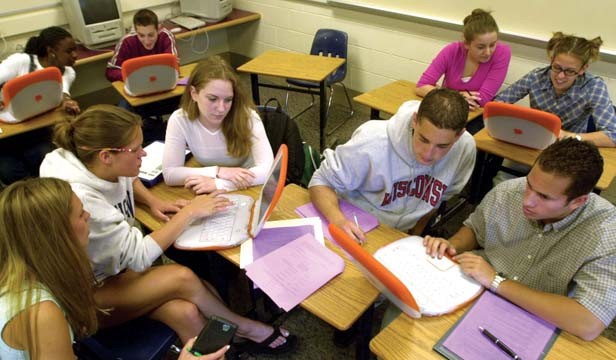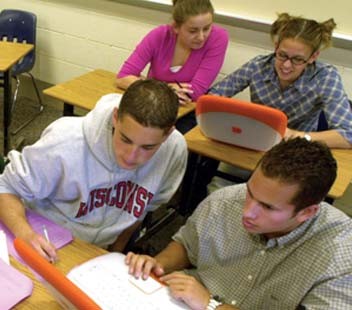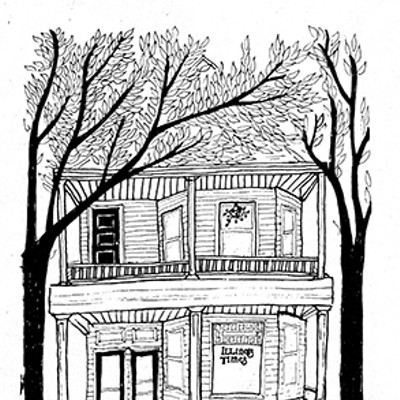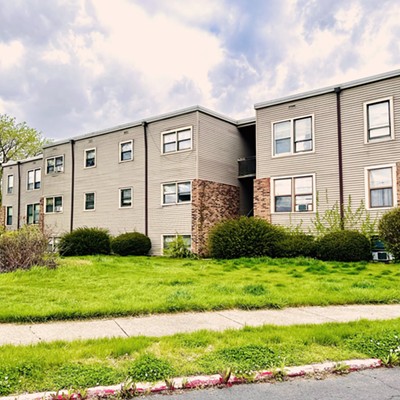
It’s back-to-school time again – the hopeful buzz of the first few weeks when the backward and the indifferent say to themselves, “This year I’m going to get it right,” followed by the chastening failures, and the gradual realization that there are some disciplines that are just too difficult to master.
I am talking of course about public school administrators and school reforms. Administrators at Southeast arrived for the first day with bags of fresh carrots and newly sharpened sticks. Under the Spartan Seven program that will go into effect later this year, under-performing students at Springfield’s Southeast High School will be offered off-campus lunch passes, free admission to home sports events and hall passes for, well, showing up. Tardiness and bad behavior will cause miscreants to be banned from ball games and other pleasures open to students not yet old enough to have real fun, like binge drinking.
Our public pedagogues reason that kids from socially marginalized families cannot see the payoff years down the road of having an education – perhaps we should say getting a diploma – so they don’t invest in it the effort it requires. It is up to the school administration therefore to provide short-term incentives to prod kids to act in their, and our, best long-term interests.
This, like so many of 186’s bright new ideas, is in fact a dull old one. Incentives more compelling than lunch at McDonald’s once a month were tried recently in four U.S. big cities, involving 38,000 kids in all. In Chicago, for eample, ninth grade students were simply offered cash to put out, academically speaking. Getting an “A” in core courses such as English, math and science earned the erstwhile mope $50; a “D” meant no money. Potentially, the motivated student could earn up to $2,000 a year.
The results? None of the bribees did better than like students in schools that did not offer bucks-for-schmucks incentives. The program fatally confused motives and means. A lot of kids want to do better but they do not know how. When students in New York or Chicago were asked how they planned to cop the cash, they came up with all sorts of ideas about test-taking strategies, but not one mentioned reading the textbooks or doing practice questions – a hint of how far conventional schooling has been deformed by test mania.
Lifting the dead hand of the educational bureaucracy frees up schools to do better but does not by itself offer a clue as to how they might do better. Some charter school kids shine, but that appears to be mainly because charter schools attract kids with involved parents who are ambitious for them. Magnet schools, which were proto-charter schools, also tend to work best for the kids who need them least.
Chicago has tried giving parents control over neighborhood schools. But giving parents more control over education won’t work because so many parents are ignorant about what their kids need to learn that causes poor classroom performance in the first place. Giving even alert parents the power to choose from the better public schools only seems like a miracle cure when “better” means only slightly less bad than the rest. As for expanding the availability of private alternatives, the parental choice system in the Milwaukee public schools gave low-income parents vouchers that could be used to send their children to private schools. The unhappy conclusion after 20 years is that voucher students achieved at about the same rates as did their peers who stayed in the local public schools.
What does work? Different kinds of schools for different kinds of kids would help. So would abandoning conventional pedagogy’s obsession with college entrance. In the end, however, what works best is what’s always worked – good teaching. Committed teaching focused on the child rather than the curriculum can, within limits, overcome some of the effects of bad parenting and barren home lives. But most conventional schools, no matter who runs them, have no idea how to provide it. That is a topic that deserves more attention than I can give it here.
Contact James Krohe Jr. at [email protected].




















